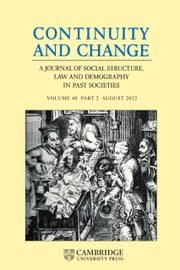Article contents
Parents and their minor children: familial politics in the middle Maghrib in the eighth/fourteenth century
Published online by Cambridge University Press: 30 October 2001
Abstract
In this essay I reconstruct a dispute that occurred in the middle Maghrib during the first half of the eighth/fourteenth century among members of a wealthy family with strong ties to the state. The pre mortem transfer of shares of a mill to minor children, one male and the other female, carried out ca. 705/1305 became problematic 20 years later, long after the children's father had died. The widowed mother used her position as legal guardian to prevent her daughter – now grown up and married – from exercising effective control over her shares of the mill; eventually, the mother sold her daughter's shares of the mill to her son, a jurist employed by the state. When her attempts to settle the dispute within the family proved unsuccessful, the daughter took her case to a sharī a court judge; the latter solicited the legal advice of a muftī, who called for nullification of the sale. The case sheds light on the operation of the Islamic legal system, points to the willingness of legal actors to uphold the rights of a female against a powerful male relative, and suggests that Muslim judges enjoyed a relatively large measure of judicial autonomy.
- Type
- Research Article
- Information
- Copyright
- © 2001 Cambridge University Press
- 3
- Cited by


